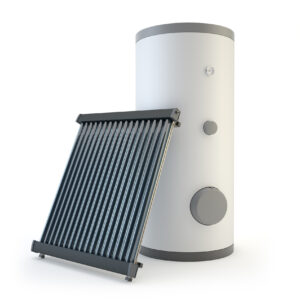Navigating the Purchase of Solar Water Heaters: A Comprehensive Guide
Harnessing solar heat is among the most primitive and most uncomplicated technologies for generating hot water. In fact, the maiden patent for a commercially manufactured solar water heater was issued back in 1891. Today’s generation of solar water heaters is highly refined to capture and store solar heat more efficiently, with an approximate 80 percent efficiency rate at transforming sunlight into usable energy.
Depending on your hot water consumption, a solar water heater could produce 40 to 80 percent of the hot water you require, without incurring any energy costs. If you’re considering investing in a solar water heater for your premises, here are some key insights to keep in mind.
Active Versus Passive Solar Systems
The initial choice you’ll have to make is between an active or passive solar system. The distinction lies in whether the system necessitates electricity to circulate the heated water. While the most energy savings originate from utilizing a passive system, this may limit you regarding the positioning of the collectors and storage tanks. Due to their fewer moving parts, passive systems are typically more reliable.
Determining the Right System Size
A general guideline for sizing a solar water heater is to account for 20 square feet of collector area for the initial two people in the household and an additional 8 square feet for each extra person. For the storage tank, an appropriate rule of thumb is roughly 18 gallons per individual.
Positioning Your Collectors
A prevalent misconception about solar water heaters is that your collectors must be perfectly placed to attain efficiency. This would necessitate a southern exposure with a corresponding tilt matched to your site’s latitude, an arrangement many house roofs cannot accommodate.
Contrarily, the performance disparity between a collector that is perfectly placed and one with a merely decent tilt and exposure is relatively minimal. Collectors can deviate as much as 45 degrees from due south and witness merely around 3.5 percent decrease in output, or have a tilt as much as 30 degrees off and see only about a 9 percent decrease in output.
Optimizing Your Energy Savings
One final consideration you may need to make when purchasing a solar water heater concerns backup hot water provision. While backup water is not a compulsory requirement, it could come in handy if you host guests or for some reason consume more hot water than the solar heater can generate. The ideal solution for backup water is opting for a tankless hot water heater, as it activates only when necessary.
Seeking Further Guidance?
If you require additional advice regarding selecting the most suitable solar water heater for your specific property and requirements, please contact The Stanley Louis Company at 800-217-6527.





